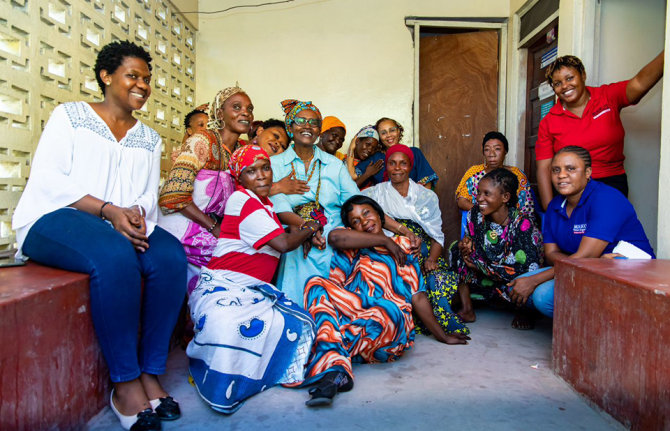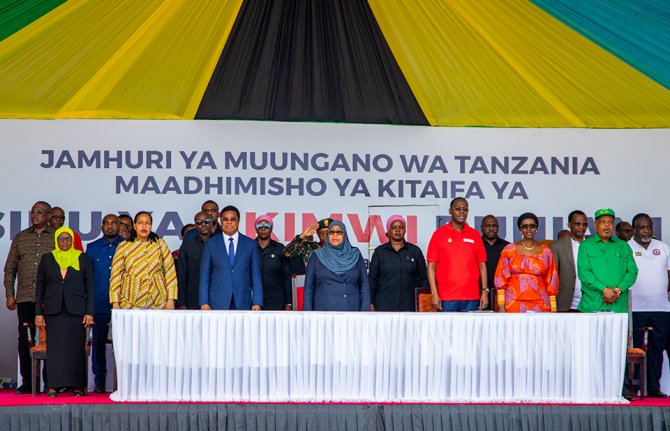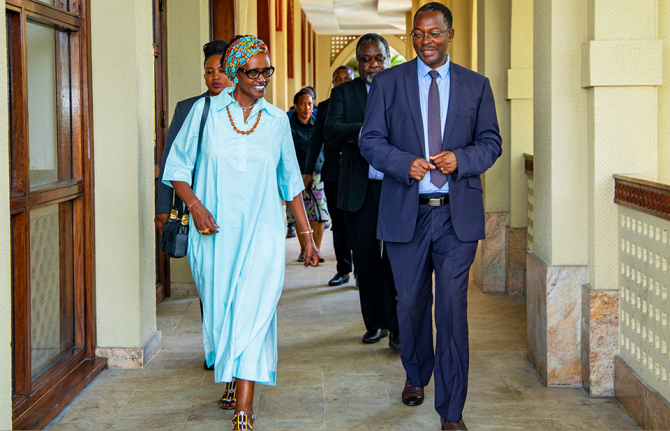



Feature Story
By bringing an end to societal and economic inequalities, we can end AIDS in Tanzania
05 December 2022
05 December 2022 05 December 2022Following a one-week visit to Tanzania and Zanzibar to launch the 2022 Global World AIDS Day report; to commemorate World AIDS Day; and to see first-hand the extraordinary work of joint efforts by the government, partners and communities to end AIDS in Tanzania and Zanzibar, UNAIDS Executive Director Winnie Byanyima issued the following statement:
“I observed strong commitment from the Government of Tanzania, our partners and activists at the frontlines fighting the HIV epidemic.
In particular, I thank Tanzania for hosting the launch event of this year’s World AIDS Day report “Dangerous Inequalities” on 29th November in Dar es Salaam, and for inviting me to join the World AIDS Day commemoration on 1st December in Lindi, Tanzania.
For the report launch, I thank our guest of honour, Hon. Minister George Simbachawene, Minister of State in the Prime Minister’s Office, for committing to end inequalities to end AIDS in Tanzania. The civil society representative, Chair of the National Council for People Living with HIV, Ms Leticia Mourice Kapela, added the commitment of communities to the theme “Equalize”, as did Deputy Minister of Health, Hon. Godwin Modell, on behalf of the Ministry of Health.
We are honoured by Her Excellency President Samia Suluhu Hassan leading the World AIDS Day commemoration, and grateful for her Government’s commitment to ending the AIDS pandemic. H.E. President Hassan spoke powerfully on the need to overcome inequalities in the AIDS response and called on TACAIDS to reduce inequalities, prevent new HIV infections and address stigma and discrimination. I commend H.E. President Hassan for her country joining the Education Plus Initiative in the lead up to World AIDS Day.
I also congratulate Tanzania for being the first country to join the Global Alliance to End AIDS in Children and I thank H.E. President Hassan for agreeing to host and participate in the launch of the Alliance early next year. No baby should be born with HIV, and no child living with HIV should be without treatment.
I welcomed the opportunity to visit the Mukikute Harm Reduction programme in Tanzania, which gives hope and dignity to people who inject drugs. I was uplifted by the passion of this community to mobilize and empower.
I was equally grateful for the opportunity to meet with allies, including ZAPHA+ and the Zanzibar Key and Vulnerable Population Forum (ZKVP-Forum).
Over the past 12 years, Tanzania has been able to reduce new HIV infections by almost 50% and to cut AIDS related deaths by 50%. 86% of Tanzanians who live with HIV are on treatment. I congratulate Tanzania on their leadership in the AIDS response. Together, with the required commitment and resources, and by bringing an end to societal and economic inequalities, we can end AIDS as a public health threat by 2030.
In closing let me reiterate the commitments that I made to Tanzania and Zanzibar in our joint efforts, namely to:
- Strengthen UNAIDS presence in Dodoma, the national government capital of Tanzania, to support TACAIDS, Ministry of Health and other Ministries in the AIDS response.
- Collaborate with the Ministry of Health in hosting the Ministerial launch of the Global Alliance and the development of the country action plan.
- Move forward Education Plus in Tanzania by ensuring that more children get enrolled in and complete secondary school.
- Support Tanzania and Zanzibar in the funding request application for the Global Fund HIV/TB grant.
- Support and strengthen collaboration between the governments of Tanzania and Zanzibar and networks of people living with HIV and other community groups that are vulnerable and at high risk for HIV infection.
I thank the government, civil society and partners of Tanzania and Zanzibar for my visit.



